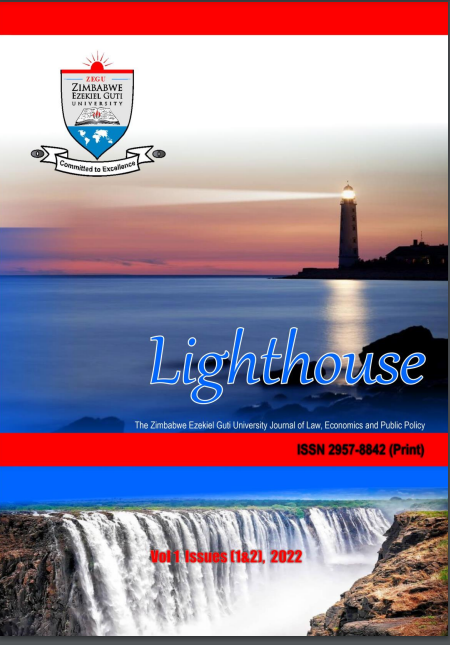Environmental Policy and the Quest to Preserve Natural Habitats including Wetlands under Climate Change and Variability in Zimbabwe
DOI:
https://doi.org/10.71458/114d5c08Keywords:
Enforcement, Governance, global warming, legal frameworkAbstract
Random changes in climate change constitute one of the major global environmental problems constraining economic development. The article argues that climate change has ceased to be a mere environmental issue and, to date, the issue has gained more traction as a human rights and developmental concept. Climate change directly and indirectly affects the enjoyment of most of human fundamental rights as provided for in the Constitution of Zimbabwe (2013) (hereinafter referred to as the Constitution) and international instruments. The existing mismatch in environmental policy frameworks is that of environmental policies versus the quest to preserve natural habitats, which mostly limit the enjoyment of other rights, being remote and, in some cases, the chain of causation appears very weak. Furthermore, the consequences of climate change exacerbate human suffering and affect the enjoyment of fundamental human rights and freedoms. The article seeks to address the major concern that while there is need to preserve natural habitats, including wetlands, societies and communities are in a war of priority, on whether development of wetlands should override preservation thereof. The article then provides that the Constitution of Zimbabwe contains many provisions which are aligned to the international legal framework on the protection of the right to a healthy and sustainable environment. The article then argues that in Zimbabwe, the law recognises the protection and conservation of wetlands, but the quest for development of these precious wetlands has resulted in fast-track disappearance of wetlands worsened by surprise changes in climate.




